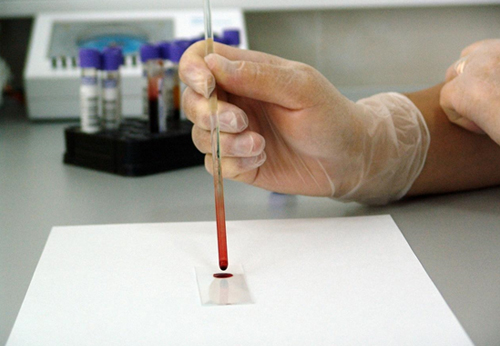Preparing For Chemical Tests And DUI Law In New Jersey
 This article will help you understand:
This article will help you understand:
- If a chemical test alone can be used to convict you of DWI.
- How often blood tests are used in DWI cases in New Jersey.
- The effect drug possession may have on how police perceive you.
Can a chemical test alone provide enough evidence to convict a person of DWI?
As we frequently tell clients, if the State has these three things–reasonable suspicion of stop, probable cause to arrest, and operation of a motor vehicle–you will get convicted if the breath or blood test result comes into evidence, even if you can tap dance on a tightrope!
Usually, police ask for breath samples from a person arrested for DWI. Blood tests are more frequently used in cases involving motor vehicle accidents. In rarer cases, police may seek blood tests if a person refuses a breath test.
New Jersey has an “implied consent” law that establishes a presumption that, if you operate a motor vehicle, you consent to submitting breath samples. While breath testing is mandated by New Jersey DWI law, blood testing is not. Generally, a police officer can get blood only if you agree to give it or they get a warrant from a judge or exigent circumstances excuse a failure to get either consent or a warrant.
Blood tests are much more problematic for the State because the prosecutor must call more witnesses to testify at trial. A breath test case requires testimony from the officer who made the arrest and the officer who obtained breath samples. Often, these officers are one and the same. For blood test cases, the prosecutor must call not only the arresting officer but also the nurse or medical technician who drew the blood sample, someone to establish movement of the blood from your arm to the chemist who tested the blood at the laboratory (chain of custody), and the chemist. A blood test case may frequently break down if the logistics of getting all these witnesses into court fail.
Could I receive a separate drug charge in a drugged-driving DWI case in Asbury Park if drugs were found on me or in my vehicle?
The presence of drugs can impact how the police approach DWI as well as how they formulate their opinions as to whether you are under the influence of drugs. The presence of drugs leads officers to conclude that drugs must be involved in any impairment they witness and often feeds their confirmation bias.
Specially trained officers called DREs—drug recognition evaluators by defense attorneys or drug recognition experts by prosecutors–conduct drug influence evaluations. While prosecutors argue that these evaluations are scientifically based, they have significant shortcomings.
DREs use a Drug Symptom Matrix. This matrix is derived from toxidromes used in the medical profession. The theory underlying these toxidromes is that certain clinical signs are associated with the use of drugs belonging to different classes of drugs. However, the clinical signs that DREs report rarely match their opinion of the categories they diagnosed.
DREs also obtain urine samples, which are submitted to a State Police laboratory for toxicology. Ordinarily, these are qualitative rather than quantitative tests. That is, tests look merely for the presence of a drug and not how much of the drug is present in the sample. Most people consent to providing the urine sample. In such cases, we find that the toxicology usually matches what the person admitted to taking. Of course, the problem for the State is that presence of a drug is not the same as impairment by a drug. Observational evidence becomes much more significant when drugs instead of alcohol is involved.
With the guidance of a skilled attorney for DWI Law, you can have the peace of mind that comes with knowing that we’ll make it look easy. For more information on DWI Law in New Jersey, an initial consultation is your next best step. Get the information and legal answers you are seeking by calling (732) 218-9090 today.

Learn your options - call me for your free, 20 min phone consultation (732) 218-9090
